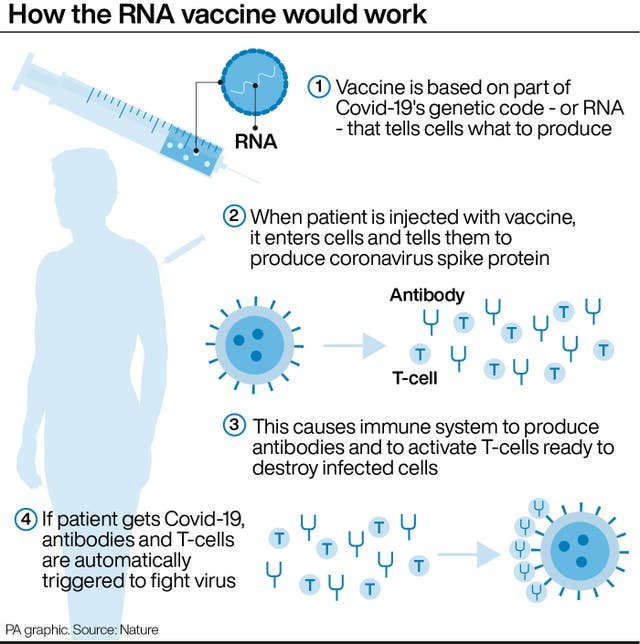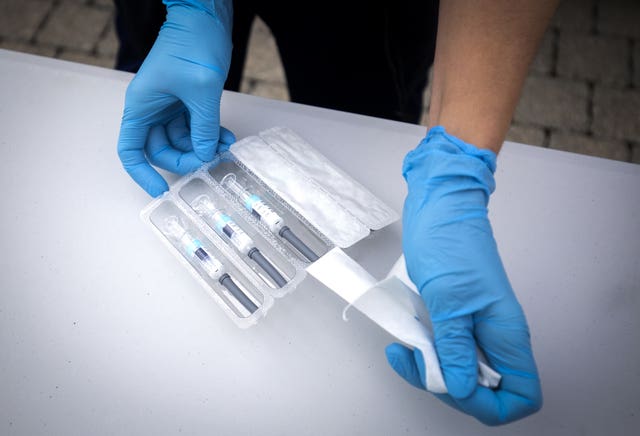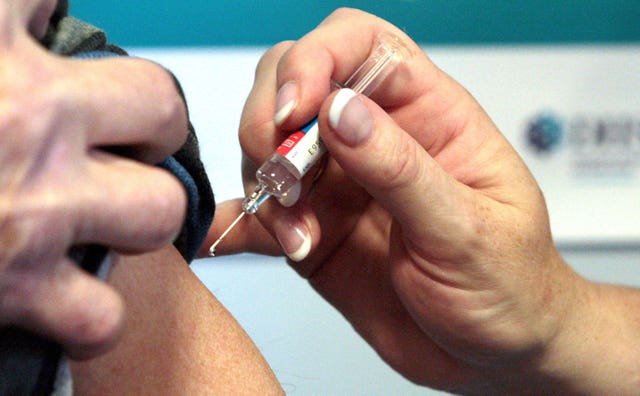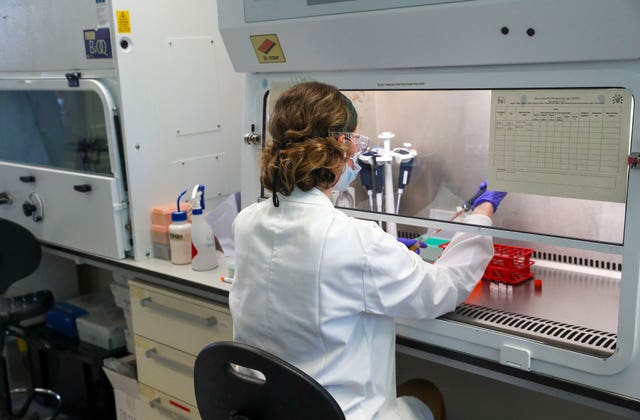While pharmaceutical giant Pfizer’s coronavirus vaccine has been found to be more than 90% effective, an expert has warned it does not mean life can return to normal just yet.
Here is everything you need to know about the new jab, what other vaccines are in development and what the experts have to say.
– Does this mean a vaccine is ready?
Not quite yet. US pharmaceutical firm Pfizer, working with German biotech company BioNTech, has released preliminary findings that suggest their vaccine is more than 90% effective in preventing Covid-19.
The vaccine has been tested on 43,500 people in six countries and no safety concerns have been raised.
Pfizer is now planning to apply to the US regulator the Food and Drug Administration (FDA) for emergency approval to use the vaccine by the end of the month.

– Is it safe?
All vaccines undergo rigorous testing and have oversight from experienced regulators.
Pfizer’s is known as a messenger RNA (mRNA) vaccine.
Conventional vaccines are produced using weakened forms of the virus, but mRNAs use only the virus’s genetic code.
They work by telling cells in the body to create antigens, which are recognised by the immune system and prepare it to fight coronavirus.
Some believe mRNA vaccines are safer for the patient as they do not rely on any element of the virus being injected into the body.

– Will the UK get the vaccine?
The UK has secured 40 million doses of the Pfizer/BioNTech vaccine – the first agreement the firms signed with any government.
People will need two doses, meaning not enough shots have been secured for the entire UK population.
The deputy chief medical officer for England, Professor Jonathan Van-Tam, said he was “hopeful” the first coronavirus vaccine could be seen by Christmas.
But he said that there was more to be done before the Pfizer/BioNTech vaccine became widely available, adding that it would be for the independent regulator to clear it for use in the UK.

– Who gets it first?
The Joint Committee on Vaccination and Immunisation (JCVI) has examined data on who suffers the worst outcomes from coronavirus and who is at highest risk of death.
Its interim guidance says that older adults in care homes and care home workers should get priority, followed by those aged 80 and over, and health and social care workers.

– What other vaccines are there?
There are more than 200 coronavirus vaccine candidates being tested around the world.
About 12 of them are in the final stages of testing, but Pfizer is the first to report any results.
The two frontrunners in the Covid-19 vaccine race are the one from Pfizer, called BNT162b2, and another being developed by the University of Oxford and AstraZeneca, which is also in phase three clinical trials.
Other potential vaccines in phase three trials include ones by US drugs firm Moderna and biotech company Novavax.
– When can we expect results from the Oxford vaccine?
More than 20,000 volunteers are now taking part in trials for the Oxford vaccine, in countries including the UK, South Africa, Brazil and Kenya.
Professor Andrew Pollard, head of Oxford’s vaccine trial team, said he is optimistic data on safety and efficacy of their vaccine will be available by the end of the year.

– Does this mean life will return to normal soon?
Life will go back to a “new normal”, but “we’re not there yet”, according to David Nabarro, co-director of Imperial College London’s Institute of Global Health Innovation.
He said: “Even if a vaccine arrives in the near future we’ve got many months of still dealing with the virus as a constant threat that we’ve got to make certain that we continue to do all that is necessary to solve the virus causing major problems.”
However, Sir John Bell, regius professor of medicine at Oxford University and a member of the Government’s vaccine taskforce, indicated people could look forward to a normal life in the coming months.
Asked if life will return to normal by spring 2021, he told BBC Radio 4’s The World At One: “Yes, yes, yes, yes. I am probably the first guy to say that but I will say that with some confidence.”





Comments: Our rules
We want our comments to be a lively and valuable part of our community - a place where readers can debate and engage with the most important local issues. The ability to comment on our stories is a privilege, not a right, however, and that privilege may be withdrawn if it is abused or misused.
Please report any comments that break our rules.
Read the rules here